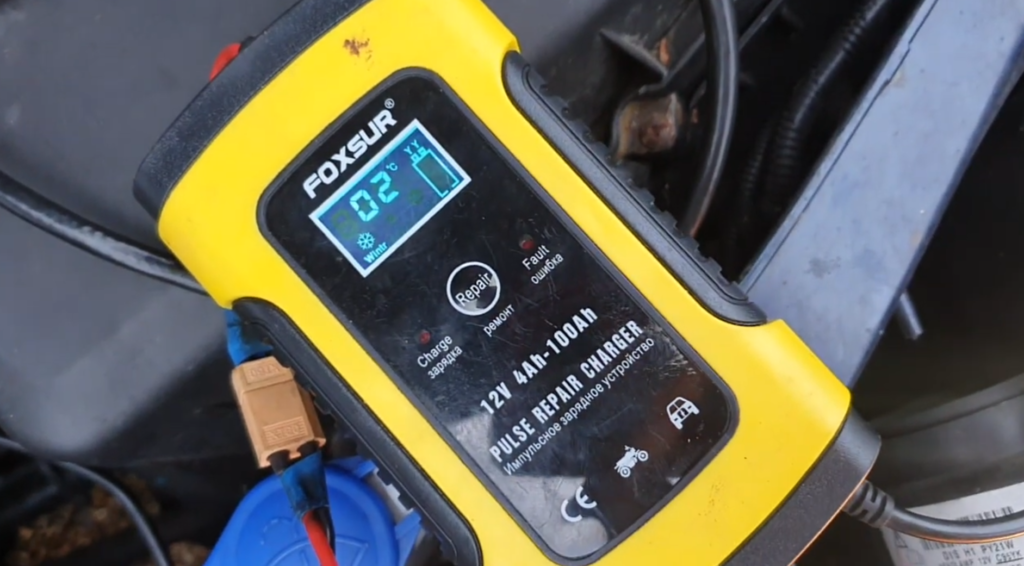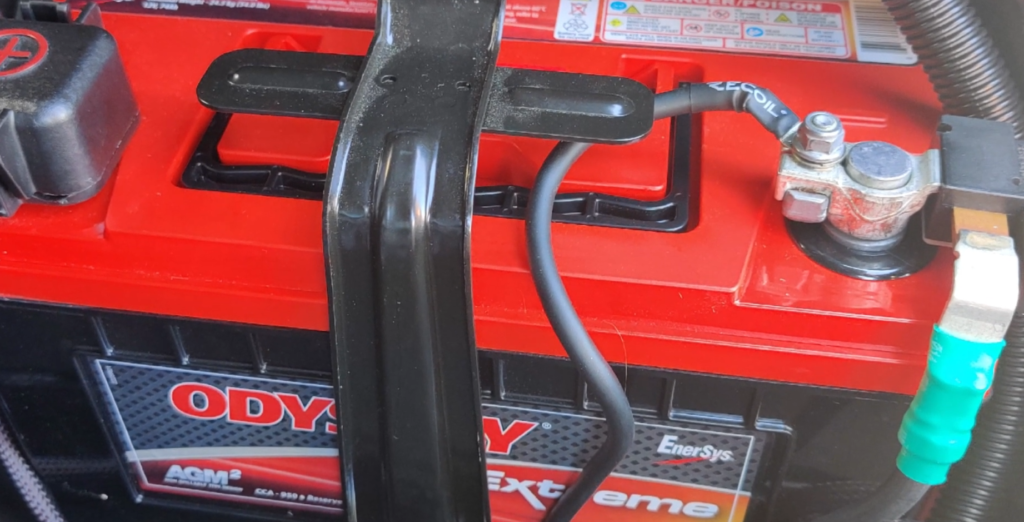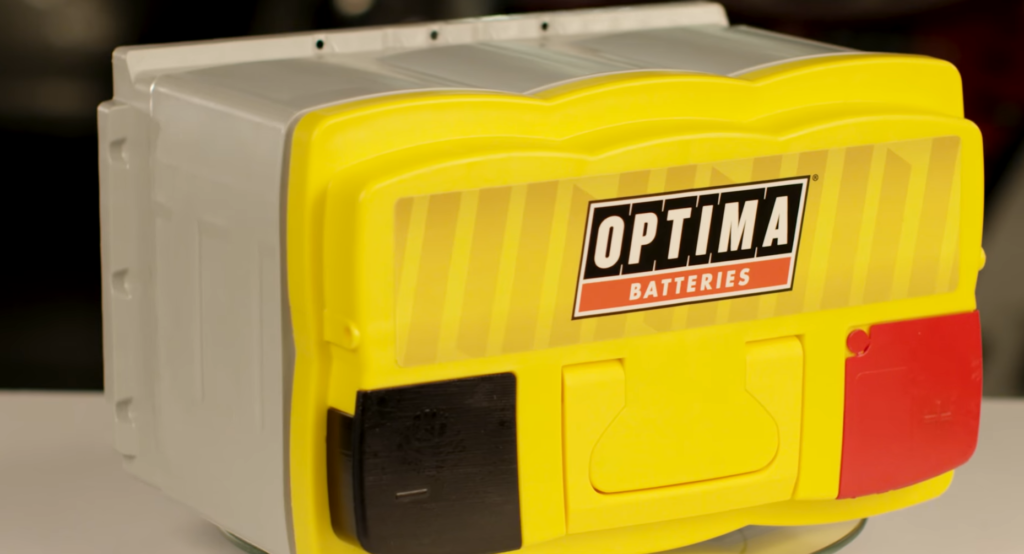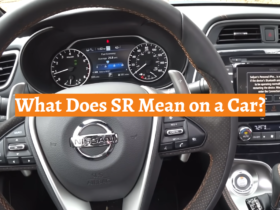The battery is one of the most important parts in your car. It stores energy that allows you to drive, so it’s no surprise people are curious about how heavy they should be! This article will teach you about the different types and weights of backpacks so that you can choose the best one for you.
How Much Does A Car Battery Weigh?
The average car battery weighs about 40 to 60 pounds. There is a wide range of weights for different types of hammers. Some can weigh up to 100+ pounds!
Weight is one factor to consider when buying a car battery. Heavier batteries will need more power to start your car. This means they may not start your car as easily or last for a long time before needing replacement
Lighter batteries can be difficult to install and remove because their weight makes them sink in water. However, this usually isn’t a problem outside wet environments such as those found near saltwater shores where corrosion often occurs first.

When shopping for a new washer, think about how much weight you need.
If it is light enough, then choose a lighter-weight model. If you need a washer with more output capacity, then choose a heavier weight. It is up to you which one you want to pick. [1]
How To Check?
The three ways to check your car’s battery are as follows: a voltmeter, hydrometer and looking at the actual cell itself.
- Look at how much power is left in it.
- Use an indicator like purple coloration which suggests lead-based chemistry.
- See if someone has replaced their old ones with new ones before they fry themselves.
If you want to know how heavy your car battery is, you can take it to a professional and have them weigh it for you.
Why Does The Weight Of A Car Battery Matter?
The weight of your car battery is important because first, a heavier one will start up more easily in cold weather. Second, it’ll last longer than lighter ones- meaning you won’t need to replace them as often! The results of the crash tests showed that heavy duty batteries are less likely to break during an accident.
The downside to a heavy battery is that it can be more difficult and time consuming. You also need enough space for the installation. This might not always be easy because cars have limitations on where they allow batteries and how much weight the battery can support. This means that it is important to find a good place for your battery and make sure that the battery is not too heavy.
Here are a few things to consider:
- The climate you live in. If you live in an area with cold winters, a heavier battery will be better able to start your car in the cold.
- How often you drive. If you only drive occasionally, a lighter battery may be fine. However, if you drive frequently, a heavier battery will last longer.
- The size of your car. A smaller car may have trouble supporting a heavy battery, so you may need to go with a lighter option.
If you want to know if your car battery is the right type for your car, you can speak with an expert. They can help choose one that’s perfect. [1]

How To Determine The Weight Of A Car Battery?
The next time your car won’t start, don’t panic! Before trying to solve the problem, make sure you have accurate information about how much the battery weighs. You can find this information in both the manuals and online resources.
The weight of a car battery can vary depending on the size and materials it’s made from. A standard 30-60 pounds, with most batteries being between 40 – 50 lbs in weight. However, there are some that can be as heavy as 70 pounds.
When purchasing a new battery, it is important to consider the weight. If you have a smaller car, you might want to get a lighter battery that is easier to install and remove.
If you need to know the weight of a car battery, it is important to be as accurate as possible. This will help avoid any problems. [1]
Types Of Batteries Weight
Batteries can be categorized into three types – lead-acid, nickel metal hydride (NMC) and lithium ion. There are different types of weights, and each has its own pros and cons. People often use them in cars because they last a long time and are perfect for most journeys.
Lead-acid batteries are not just the oldest type of battery, they’re also one step away from being considered disposable. These heavy duty devices weigh in at about 40 to 60 pounds. This is how much a single cell system weighs. If you add all your cells together, it will be more than three times that amount!
Nickel-metal hydride batteries are excellent for their size and weight. They provide more power than other comparably sized cells, yet they’re lighter so you can carry them around with ease!
Lithium-ion batteries are a newer technology and have become one of the most popular types of batteries today. They are made up of a combination of materials, including lithium, that helps give them their weight – 20 to 30 pounds!

Battery weight is one of the most important factors to consider when buying a battery. Heavier batteries store more power and last longer, but they are also heavier. This makes them harder to install or remove from your vehicle in certain situations like flat tires on sidewalls. [2]
Lightweight Batteries
The car battery is a heavy, bulky package that takes up space in your vehicle. The average weight of a power generator can be over 40 pounds, depending on the model and type of cells used. New technology has come about to alleviate this problem by developing batteries that are smaller in size – meaning you’ll have more room left!
One example is the Optima YellowTop Battery, which weighs in at a mere 20 pounds. This battery is lightweight and easy to carry. This makes it one of the lightest batteries on the market.
Similarly, the Odyssey PC680 Battery only weighs 17.64 pounds. This makes it a good option for cars that are frequently used for off-roading or racing.
Standard Batteries
They are usually around 40-60 pounds. The battery in your car is responsible for starting the engine, as well as powering the lights and accessories while the engine is off. A battery typically lasts between three and five years, but driving habits, climate, and maintenance can all affect a battery’s lifespan.

If you’re noticing that your car’s battery isn’t lasting as long as it used to, or if it’s been more than three years since you’ve replaced it, then it might be time for a new one. Here are a few things to keep in mind when shopping for a new battery:
- Size: Car batteries come in different sizes, so make sure you get the right one for your car. You can usually find this information in your owner’s manual or on a sticker under the hood.
- Type: There are two main types of batteries – lead-acid and absorbed glass mat (AGM). Lead-acid batteries are the most common type, but AGM batteries are becoming more popular because they don’t require as much maintenance and can last longer.
- Power: Batteries are measured in terms of cold cranking amps (CCA), which is the amount of current it can provide at 0 degrees Fahrenheit. The higher the CCA, the better the battery will be able to start your car in cold weather.
When you’re ready to buy a new battery, be sure to do some research to find the best one for your car. And if you’re not sure how to install it yourself, most auto parts stores will be happy to do it for you. [2]
Empty Batteries
They are much lighter than full batteries. This is because a battery is mostly made up of water. When you use up the power in a battery, you’re also using up the water. So, when you see a battery that’s been used for a while, it’s usually much lighter than a brand new one.
Of course, there are other factors that can affect how heavy a battery is. For example, the size of the battery will make a big difference. A small battery for a motorcycle is going to be much lighter than a large battery for a car. And, of course, different types of batteries are going to have different weights.
But in general, you can expect a battery to be much lighter when it’s empty than when it’s full.
Why Size Matters?
It’s important to consider the physical dimensions of your car when shopping for batteries. When you are looking for a battery, you will want to find one that fits well with the other things that are installed in your car. If the battery doesn’t match, then it might be hard to use some of the other accessories in your car, like radar detectors or power seats.
Most batteries are either standard or heavy-duty. Standard batteries are usually about 12 inches long, six inches wide, and seven or eight inches tall. Heavy-duty batteries, on the other hand, can be up to twice as big as a standard battery. These bigger batteries are often found in larger vehicles such as trucks and SUVs.

This also affects how much power the battery can provide. A heavier battery usually means that it has more power and can last for a longer time than a lighter battery. [2]
Weighing In: Unraveling the Mass of Car Batteries
Curious about the weight of car batteries? Dive into the detailed table below to explore the various factors influencing the weight of car batteries across different types and applications.
| Battery Type | Chemistry | Weight Range (lbs) | Common Applications | Notable Brands |
|---|---|---|---|---|
| 1. Lead-Acid Battery | Lead-acid | 20 – 60 | Internal Combustion Engine Vehicles | ACDelco, Optima |
| 2. Lithium-Ion Battery | Lithium-ion | 10 – 30 | Electric and Hybrid Vehicles | Tesla, Panasonic |
| 3. AGM (Absorbent Glass Mat) Battery | Lead-acid | 30 – 70 | Modern Vehicles with Start-Stop Systems | Odyssey, VARTA |
| 4. Gel Cell Battery | Lead-acid | 40 – 70 | Recreational Vehicles, Solar Power Systems | Renogy, Trojan Battery |
Explanation of the table:
- Lead-Acid Battery: Commonly found in traditional vehicles, lead-acid batteries weigh between 20 to 60 lbs, with brands like ACDelco and Optima.
- Lithium-Ion Battery: Utilized in electric and hybrid vehicles, lithium-ion batteries have a weight range of 10 to 30 lbs, with notable brands including Tesla and Panasonic.
- AGM (Absorbent Glass Mat) Battery: Featured in modern vehicles with start-stop systems, AGM batteries weigh between 30 to 70 lbs and are manufactured by brands such as Odyssey and VARTA.
- Gel Cell Battery: Commonly used in recreational vehicles and solar power systems, gel cell batteries weigh between 40 to 70 lbs, with brands like Renogy and Trojan Battery.
FAQ
Why is a Car Battery So Heavy?
First, they need to be able to provide enough power to start your engine and run all of the electrical components in your car. This requires a lot of energy, which is why car batteries are usually much larger than regular household batteries. This is because car batteries need to be able to power the car for a long time.
Another reason why car batteries are heavy is because they are made with lead. Lead is a very dense metal, so it adds a lot of weight to the battery. Lead is poisonous, so it’s important to handle car batteries with care and dispose of them properly when they are no longer working.
Finally, car batteries need to be able to withstand a lot of vibration and shock. This is because they are often located in the engine bay, where there is a lot of movement and noise. To help protect the battery from damage, they are encased in a heavy-duty plastic or metal housing.
All of these factors contribute to why car batteries tend to be on the heavier side. However, there are some newer battery technologies becoming available that are lighter and more efficient. So if you are looking for a lighter battery for your car, you should do some research to see what is available.
How Heavy is a 12 Volt Car Battery?
Some batteries may be heavier or lighter, but they all have about the same weight. This makes it feel pretty steady when you walk around with one load.
Lead-acid batteries are the most common type of car battery. They usually weigh between 30 and 60 pounds. This weight can vary depending on how many cells the object has. Lead acid batteries have a high internal resistance, which makes them produce more energy than other types of batteries. However, this same attribute also causes them to last less time.
The average weight of a lithium ion battery is about half that of lead acid. Lithium Ion batteries typically weigh between 15 – 30 pounds, with some as light at 10lbs or less!
Weight is an important factor to consider when buying a new battery for your car. Heavier batteries will be more difficult to work with and take up space. This might not be a good option if you want something light-weight and easy to fit into tight spaces. Batteries that are light-weight, like lead acid or lithium ion batteries, are usually smaller in size and can be cheaper.
The choice of which car battery is right for you depends on a number of factors, such as weight and size. You should also consider type (standard or deep cycle), price range etc., so do some research before making your decision.
How Heavy is an Empty Car Battery?
Car batteries are usually heavy, weighing between 33 and 50 pounds on average. The size of the battery will also affect its weight. Some batteries are lighter than others because they are designed for certain types of vehicles or models that don’t require as much power storage. So it is important to check your owner’s manual before purchasing a battery!
The typical car battery is a large, heavy duty device. You need a portable power source that can start your car and power all of its electrical systems easily.
Second, car batteries are made with lead acid. This thick and durable material helps to make them last longer than other types of cells!
Lastly, car batteries need to have a weighty casing so they can stay put while the vehicle is in motion. This helps avoid any shaking or jiggling when you drive around town.
How Heavy is an Average Battery?
The average car battery weighs about 40 pounds, but some can weigh as little at 30 or 60 pounds. The weight will depend on what kind of battery you have and how big it is in size!
The lead plates are what make up the weight of a battery. The sulfuric acid only makes up a small percentage, but it’s still there.
What factors determine the weight of car batteries?
The weight of car batteries can be influenced by several factors, including the type of battery, its capacity (measured in ampere-hours), and the materials used in its construction. Lead-acid batteries, common in automobiles, tend to be heavier due to the lead plates and electrolyte they contain. Other types of batteries, such as lithium-ion, are generally lighter for the same energy capacity.
Do all car batteries have the same weight?
No, car batteries do not all have the same weight. The weight of a car battery can vary based on its type, size, and intended use. Lead-acid batteries, which are traditional in many vehicles, are heavier compared to newer technologies like lithium-ion batteries, which are lighter but may have different characteristics and applications.
How does the size of a car battery impact its weight?
The size of a car battery, often referred to as its physical dimensions, can impact its weight. Larger batteries, with more significant internal components and higher capacity, tend to be heavier. It’s essential to choose a battery size that is compatible with your vehicle’s specifications and requirements to ensure optimal performance.
Are there lightweight alternatives to traditional lead-acid car batteries?
Yes, there are lightweight alternatives to traditional lead-acid car batteries. Lithium-ion batteries, for example, are known for their relatively lower weight compared to lead-acid batteries with similar energy capacity. These lightweight alternatives are becoming more common in certain applications, offering benefits such as improved energy density and longer lifespan.
How does the weight of a car battery affect vehicle performance?
The weight of a car battery can have a minimal impact on overall vehicle performance. While a lighter battery may contribute to a slightly lower overall vehicle weight, the difference is often negligible in everyday driving conditions. Factors such as the type of battery, capacity, and reliability are generally more critical considerations when choosing a battery for your vehicle.
Can a heavier car battery provide more power to the vehicle?
The weight of a car battery is not directly proportional to the power it can provide to the vehicle. The power output of a battery is determined by its capacity (ampere-hours) and voltage. While heavier lead-acid batteries may have higher capacities, other factors like technology and design play a more significant role in the power delivery of a battery.
Useful Video: What Type Of Car Battery Should You Use? Flooded vs AGM
Conclusion
How heavy are car batteries? Surprisingly, they’re not as heavy as you might think. Modern car batteries weigh anywhere from 10 to 30 pounds, with the average battery weighing in at around 22 pounds. With that weight comes a lot of power – enough to start your engine and get you on your way. Thanks for reading!
Do you have any questions about car batteries? Leave a comment below and we’ll do our best to answer them. And be sure to check out our other blog posts for more helpful tips and advice.
References:
- https://www.thepowerall.com/how-much-does-a-car-battery-weigh/
- https://www.smartmotorist.com/car-battery-weight










Leave a Review